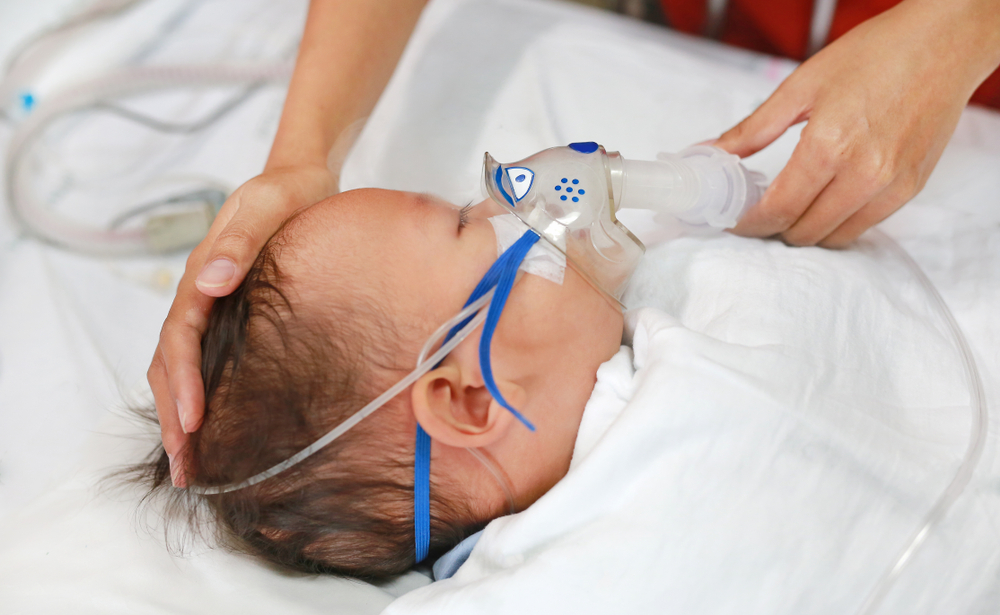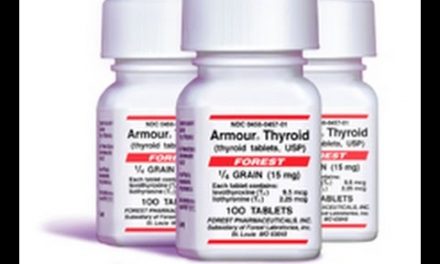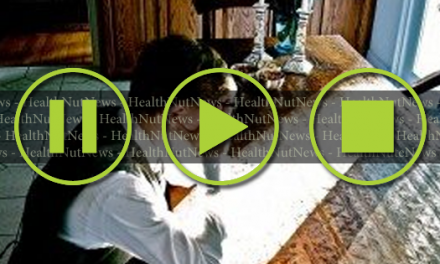After a Keansburg, New Jersey mom’s son had a close call with a severe case of respiratory infection, she is warning people against kissing babies. Mother of four, Ariana DiGrigorio experienced a nightmare when her 8-month-old son Antonio caught the flu. When he didn’t get better after two months, she took him to the hospital where he was diagnosed with respiratory syncytial virus (RSV). RSV causes infections in the respiratory tract and lungs. (1)
After her experience, she decided to share the pictures of her son in the hospital on Facebook urging parents to stop people from kissing their infants. (1)
RSV Treatment
Antonio was admitted into Jersey Shore University Medical Center’s pediatric intensive care unit in February 2019. “It was scary,” she says. “Before he was transferred into the ICU he was in a regular room and he went into respiratory failure. They said [he] was doing better with Albuterol [breathing] treatments they were giving him and then it went downhill from there.” (1)
Babies Vulnerable To RSV
According to Dr. Saumya Bhutani, a resident in ABC News’ Medical Unit, RSV will or has infected most children by the age of 2. However, because it can also infect adults, they can pass it on to the more vulnerable including babies and those with compromised immune systems. (1)
RELATED STORY:
RSV Season
“RSV is most common from December to March,” says Dr. Bhutani. “It is very contagious and kids can get it from ‘respiratory droplets,’ basically meaning from the droplets of someone’s cough or sneeze, whether those droplets directly get into a child’s mouth, eyes, or nose or, the child touches surfaces like tables, cribs or toys that have those droplets on them.” (1)
“I attribute it to the fact that he was in daycare, ended up with the flu and it progressed from there,” says DiGrigorio. Dr. Bhutani warns that daycares can be breeding grounds for infection. According to the Center for Disease Control people with RSV are contagious for 3-8 days. Unfortunately, infants and those with weakened immune systems can potentially spread the virus for up to 4 weeks without showing any symptoms. (1,2)
RSV Follow-up
Following his illness, Antonio stills sees a respiratory physician every few months. He also requires breathing treatments every four hours. With the aftermath of his illness DiGrigorio wants parents to know how bad RSV can be for infants. “I wanted to spread awareness of the seriousness of RSV, plus I just had another baby son so I am trying to prevent what happened to [Antonio] from happening to him,” she says. (1)
RELATED STORY:
RSV Prevention
According to Dr. Bhutani parents can take preventative measures during flu season including: (1)
- Washing hands, especially before and after being in contact with someone with the infection
- Cleaning surfaces
- Avoiding contact with infected people
You can also be aware of the symptoms of RSV: (1)
- Fever, runny nose, congestion in the first two to four days
- Cough, wheezing, and sometimes trouble breathing as it progresses
RELATED STORY:
Dr. Bhutani says if parents note the following symptoms, they should contact their pediatrician or take their child to the emergency room: (1)
- They use their belly or neck muscles to breathe
- Their nose flares when breathing
- Rapid breathing
“I got a lot of positive feedback and thanks for sharing … because not a lot of people know a lot of information about it,” says DiGrigorio. “I figured if I make people aware that my son contracted it later and not at a few weeks old, [they’d know] it can happen to anyone at any age.” (1)
*Article originally appeared at Healthy Holistic Living. Reposted with permission.












